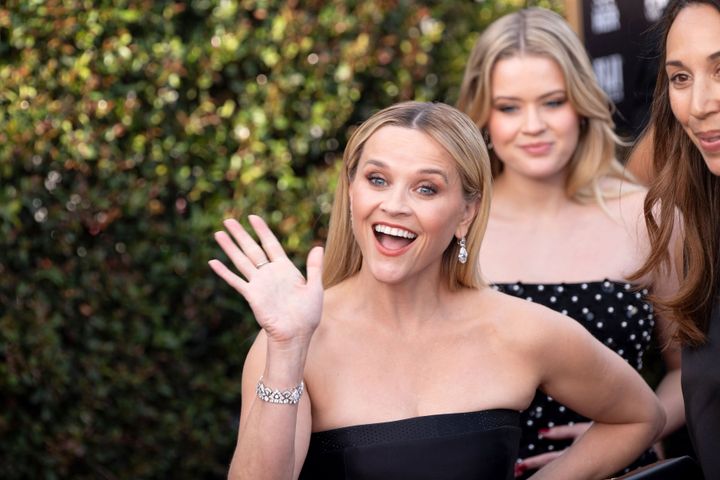Reese Witherspoon has responded to a flurry of comments criticizing her for making a tasty treat out of freshly fallen snow.
On Thursday, the “Big Little Lies” star shared a recipe for what she dubbed a “snow salt chococcino” on TikTok.
“We got a ton of snow over the past few days, so we decided to make a recipe,” she says in the video, which shows a person using two mugs to scoop snow from a large pile outside.
The snow gets flavored with chocolate syrup, caramel sauce and cold-brew coffee before Witherspoon digs in with her spoon and declares the mixture “so good.”
Though many of the comments on the video were positive, a number of people criticized the practice of eating snow as unsanitary or warned that she could get sick.
Robert Smith/Patrick McMullan via Getty Images
The Oscar-winner responded to those comments with her own assessment. In one video, she took the advice of someone who recommended that she let the snow melt to see if it looked dirty.
“We microwaved it and it’s clear,” she says, holding up a glass and sounding nervous. “Is this bad? Am I not supposed to eat snow?”
In subsequent videos, she sounds more secure in her snow-gobbling ways.
“We’re kind of in the category of, like, you only live once, and it snows maybe once a year here,” she says in one clip.
Plus, she adds, “it was delicious.”
Witherspoon’s rebuttal isn’t so different from what experts on the matter say.
“I would not hesitate for my children to have the joy of eating a handful of fresh fallen snow from my backyard,” Staci Simonich, a professor of environmental and toxic ecology at Oregon State University, previously told NPR in its investigation of snow consumption.
Snow can accumulate environmental contaminants, like pesticides, she said, but “concentrations are low and the amount of snow eaten in a handful is small, so the one-time dose is very low and not a risk to health.”
Writing for the Nationwide Children’s Hospital, pediatrician Dr. Laura Martin said in 2022 that the “short answer” is that it’s safe to eat snow, but “probably not all snow” and “moderation is best.”
“The safest snow to consume will be the whitest, fluffiest top layer of fallen snow, furthest away from the ground,” she wrote.
It’s also crucial to avoid eating any snow that’s been plowed, according to Mark Williams of the Institute of Arctic and Alpine Research at the University of Colorado. That advice holds even if the snow looks clean, since it could contain sand or chemicals like magnesium chloride, he told NPR.
Where you live may also be a factor. Parisa Ariya, a professor of chemistry and atmospheric sciences at McGill University, told HuffPost in 2016 that she does not suggest that “young kids” eat snow “in urban areas” due to pollutants, though she added that she did not “wish to be alarmist.”
And, of course, don’t eat the yellow snow.

